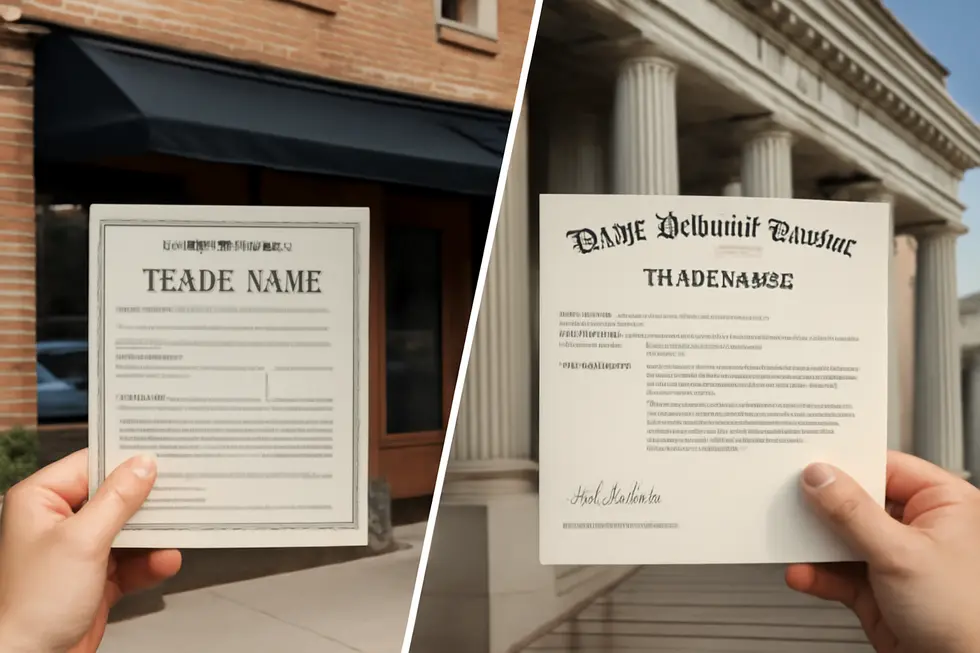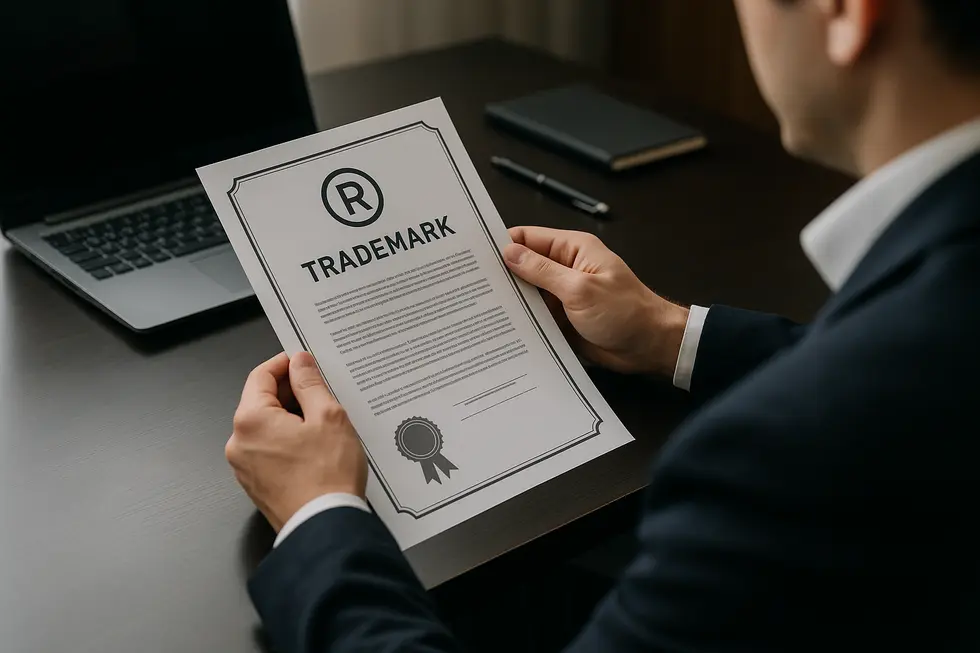导言
Choosing the right business name is a critical step for any entrepreneur in Colorado. When operating under a name other than your personal or corporate one, understanding the significance of trade name registration is essential. Colorado trade name registration allows business owners to legally operate under assumed names, creating branding opportunities without forming new legal entities. This article explores what Colorado trade name registration entails and the legal requirements that come with it. It also highlights the important differences between trade name registration and trademark protection, clarifying which safeguards suit your business goals best. Finally, a clear, step-by-step guide walks you through the registration process and associated fees, empowering you to establish your business identity confidently and compliantly within Colorado’s legal framework.
目录
Chapter 1: Navigating Colorado Trade Name Registration: Definition and Legal Requirements
- Defining a Trade Name and Recognizing When Colorado Registration Is Essential
- Navigating Colorado’s Legal Steps and Compliance for Trade Name Registration
- Key Differences Between Colorado Trade Name Registration and Trademark Protection
Chapter 2: Comparing CO Trade Name Registration and Trademark Protection
- Key Legal and Administrative Differences Between Colorado Trade Names and Trademarks
- Navigating Geographic Boundaries and Legal Reach: How Colorado Trade Names and Trademarks Differ
- Unlocking Enforcement Power: Intellectual Property Rights Behind Colorado Trade Name Registration and Trademark Protection
Chapter 3: Step-by-Step Guide to CO Trade Name Registration Process and Fees
- Navigating Colorado’s Trade Name Choice: Ensuring Uniqueness and Compliance Before Registration
- Navigating Colorado’s Trade Name Filing: Requirements and Practical Steps for Registration
- Navigating Colorado Trade Name Registration: Fees, Renewal, and Compliance Essentials
Chapter 1: Navigating Colorado Trade Name Registration: Definition and Legal Requirements

1. Defining a Trade Name and Recognizing When Colorado Registration Is Essential
A trade name, often called a DBA or “Doing Business As” name, serves as the public identity a business uses when it operates under a name differing from the owner’s legal designation. In Colorado, this concept is especially significant for sole proprietors and non-reporting entities who wish to present a brand or business persona separate from their personal or registered corporate names. When a sole proprietorship conducts business without using the owner’s legal full name, state law requires registration of that assumed name to ensure transparency and accountability.
The essence of a trade name lies in its function as a recognizable business label. For sole proprietors, the default business name is simply the owner’s legal first and last name, so any deviation mandates formal registration. For entities such as LLCs or corporations, if they operate under any alternate name not officially registered as their entity name, those names must likewise be registered as trade or fictitious names. This ensures that consumers, vendors, and regulatory bodies can readily identify who is conducting business under each trade name.
Registration becomes a mandatory legal obligation under Colorado law whenever a trade name is used. This process not only provides public notice of the business’s true ownership but also helps avoid confusion or misrepresentation among consumers. However, it is important to distinguish trade name registration from trademark protection. Registering a trade name allows a business to operate legally under that name but does not grant exclusive rights to it; those stronger protections come through federal trademark registration, which guards against unauthorized use of the name or logo.
Overall, trade name registration in Colorado involves submitting the proper form to the Secretary of State’s office and paying a nominal fee. The state also requires businesses to verify the availability of their chosen name to prevent duplicate use. While this registration establishes the business’s public identity, securing exclusive rights to the name requires pursuing trademark registration, a more involved process handled by the United States Patent and Trademark Office. For more detailed guidance on registering a trade name in Colorado, resources such as the LLC University provide comprehensive overviews and procedural steps.
For further insights on protecting your brand beyond registration, explore more about how to 为您的企业名称注册商标.
External resource: https://www.llcuniversity.com/sole-proprietorship-colorado/
2. Navigating Colorado’s Legal Steps and Compliance for Trade Name Registration
In Colorado, registering a trade name, commonly called a DBA (“Doing Business As”), is a straightforward but essential legal step for businesses operating under a name different from the owner’s legal name. This registration applies mainly to sole proprietorships and non-reporting entities, ensuring the business name is formally recognized by the state. The key requirement involves submitting the “Statement of Trade Name of a Non-Reporting Entity” form to the Colorado Secretary of State and paying a nominal $20 fee. This simple process secures a business’s ability to legally use their chosen trade name and helps guard against duplicate names causing confusion within Colorado’s marketplace.
For LLCs and corporations, naming rules are more rigorous. These entities must incorporate specific designators such as “LLC” or “Limited Liability Company” and ensure their chosen name is clearly distinguishable from other registered businesses. Additionally, certain restricted words related to government or regulated industries cannot be used without express authorization. These measures protect the integrity and clarity of business identities across the state, preventing misleading or unauthorized use of names.
While trade name registration provides the legal foundation to operate under an assumed name within Colorado, it does not grant exclusive rights or nationwide protection. Those seeking stronger intellectual property safeguards should consider registering a trademark at the state or federal level. Trademarks provide exclusive rights to brand names or logos connected to goods or services and require a more detailed application process with higher fees, processed through the USPTO for federal protection.
Registering a trade name not only satisfies legal compliance under Colorado law but also helps businesses establish a local brand identity and avoids potential conflicts with existing entities. Entrepreneurs looking to reinforce their brand’s security should explore trademark protection; resources like the Colorado Secretary of State website offer forms, name availability checks, and further guidance on these legal steps.
For more on protecting your business identity beyond trade name registration, consider learning about how a trademark prevents others from using your brand at trademark protection guidance.
Additional detailed procedures and official filings can be found on the Colorado Secretary of State’s website.
3. Key Differences Between Colorado Trade Name Registration and Trademark Protection
Registering a trade name in Colorado is a straightforward process enabling sole proprietors and other businesses to legally operate under a name different from their legal or corporate name. This registration, commonly known as a DBA (Doing Business As), grants the right to use that name locally and ensures transparency to customers and state authorities. The cost is modest—$20 to file a Statement of Trade Name for non-reporting entities—and the process focuses on confirming the name isn’t deceptively similar to existing registered entities in the state.
However, registering a trade name does not provide the comprehensive legal protections of a trademark. While trade names serve the purpose of establishing a business’s legal identity within the state, trademarks protect a brand’s distinctive elements—such as logos, slogans, or product names—at a federal level, offering exclusive rights across the entire country once registered with the United States Patent and Trademark Office (USPTO).
Trademark registration is more complex and costly, requiring detailed applications, higher fees ranging from $250 to $350 per class of goods or services, and a thorough examination process that can take several months. In contrast, trade name registration primarily prevents others from registering the same or confusingly similar name within Colorado but does not stop unrelated entities from using that name elsewhere or even in overlapping markets.
In practical terms, a business might register “Rocky Mountain Consulting” as its trade name to operate locally under that alias, but without federal trademark registration, competitors could potentially use the same or similar branding in other regions. To secure broad protection, businesses are encouraged to follow trade name registration with trademark applications, safeguarding their brand identity and preventing infringement nationwide.
This nuanced distinction between trade name registration and trademark protection is essential for Colorado businesses to understand as they build and protect their commercial identity. For deeper insight into brand protection strategies, consider exploring resources on the benefits of registering trademarks for your business’s distinctive identity at 受法律保护的品牌商标.
Chapter 2: Comparing CO Trade Name Registration and Trademark Protection

1. Key Legal and Administrative Differences Between Colorado Trade Names and Trademarks
Understanding the legal and administrative contrasts between Colorado trade name registration and trademark protection reveals distinct purposes and scopes essential for business identity and legal security. A trade name—often called a DBA—is primarily a state-level tool allowing sole proprietors and non-reporting entities to officially register the name under which they conduct business if it is different from their legal personal name. This process entails submitting a simple statement to the Colorado Secretary of State alongside a modest $20 fee. Its core purpose is to ensure public transparency and prevent other local businesses from adopting an identical or confusingly similar trade name. However, this registration confers no intellectual property rights and its enforceability is limited to state boundaries and the prevention of duplicate filings within Colorado.
On the other hand, trademarks serve as a form of intellectual property protecting brand names, logos, or slogans that uniquely identify goods or services. They offer exclusive rights in commerce, enabling businesses to take legal action against unauthorized use that causes consumer confusion or dilutes the brand. Colorado allows state trademark registration with renewal every five years but, for broader and stronger protections, federal registration through the USPTO is often sought, granting nationwide priority. These procedures are more complex, costly, and involve detailed applications, including classification of goods or services and thorough examinations.
The distinctions manifest across multiple factors: while trade names focus on simple administrative compliance with limited geographic scope and no inherent exclusivity, trademarks deliver enforceable intellectual property rights and commercial protection over a brand’s identity. Thus, registering a Colorado trade name enables operating under an assumed business name locally but does not prevent others from using the same or similar marks elsewhere or even within the same state if they secure trademark rights. For businesses seeking to solidify brand ownership and legal recourse, pursuing trademark registration after conducting proper name searches is crucial. For more insights on how trademarks protect your brand from misuse, see this detailed resource on how a trademark prevents others.
The difference between these two registrations fundamentally involves balancing ease and cost against the scope and strength of protection needed for business identity.
2. Navigating Geographic Boundaries and Legal Reach: How Colorado Trade Names and Trademarks Differ
Navigating Geographic Boundaries and Legal Reach: How Colorado Trade Names and Trademarks Differ
Trade name registration in Colorado and trademark protection operate within distinct geographic and legal scopes. A registered trade name typically grants rights only within the state or locality where it is filed. This means that a Colorado trade name registration offers protection limited to that jurisdiction, making enforcement outside Colorado challenging or nonexistent. Consequently, business owners relying solely on trade name registration can face risks if similar names are used in other states or regions.
In contrast, trademark protection is territorially structured but can extend nationwide when federally registered through the USPTO. Federal registration confers exclusive rights to the mark across all U.S. states, greatly reducing conflicts and unauthorized use beyond state borders. However, unregistered trademarks obtain common law protection only in geographic markets where the mark is actively used and recognized by consumers, limiting their reach compared to federally registered trademarks.
Geographic terms present additional complexities. When a trade name or trademark includes a geographic descriptor—such as a city or region—the inherent distinctiveness needed for strong protection is diminished. To secure trademark rights in these cases, proof of 次要含义 is required, showing consumers associate the term with the specific business source. Even then, enforcement against competitors from the same area may be restricted by fair use doctrines allowing descriptive use of geographic terms.
This geographic limitation affects brand expansion as well. A trade name closely tied to Colorado may not resonate or be protectable in other markets. On the other hand, federal trademarks avoid these barriers by offering a uniform legal framework and broader exclusivity nationwide.
Ultimately, understanding these geographic and legal distinctions is critical for Colorado businesses. While trade name registration is relatively simple and affordable for local use, securing comprehensive protection and scalability often necessitates pursuing trademark registration. For deeper insights, Aaron Hall’s analysis on trademark priority and geographic scope offers valuable guidance.
Learn more about the broader advantages of protecting your brand through trademark registration in this detailed guide to trademarking your business name.
3. Unlocking Enforcement Power: Intellectual Property Rights Behind Colorado Trade Name Registration and Trademark Protection
Unlocking Enforcement Power: Intellectual Property Rights Behind Colorado Trade Name Registration and Trademark Protection
In Colorado, registering a trade name primarily functions as a state-level administrative step to identify a business operating under an assumed name. This registration helps prevent other entities from officially registering identical or confusingly similar names within the state, which lends some clarity for business records and consumers. However, this protection is limited—it neither grants exclusive rights to the name in commerce nor empowers the business to enforce broad intellectual property claims. Trade name registration effectively safeguards the name only within the narrow confines of Colorado’s registration database but does not legally prohibit other parties from using or marketing under similar names elsewhere.
Trademark protection, on the other hand, offers far-reaching and enforceable intellectual property rights designed specifically to secure a brand’s identity at both the state and federal levels. Federal trademark registration bestows exclusive nationwide rights to use, license, and enforce the trademark in connection with specific goods or services. It provides a legal presumption of ownership that can be vigorously defended through cease and desist orders, lawsuits seeking damages, injunctions, and even the removal or destruction of counterfeit goods. This robust legal framework helps businesses maintain brand integrity and prevent consumer confusion, which trade name registration alone cannot guarantee.
Moreover, trademarks benefit from structured dispute resolution processes such as mediation and arbitration, serving as efficient means to resolve conflicts without prolonged litigation. These mechanisms offer businesses enduring leverage to protect their intellectual property investment.
In contrast, Colorado’s trade name registration mechanism does not support such enforcement tools beyond the state’s administrative boundary. It does not extend protection against infringers or counterfeiters, nor does it provide a presumption of exclusivity. Consequently, businesses seeking strong legal protections must follow trade name registration with trademark registration to build enforceable rights.
For those interested in detailed strategies to safeguard and enforce trademarks, resources that explore trademark enforcement best practices and dispute resolution offer valuable guidance. Understanding these distinctions is essential for Colorado businesses aiming to secure comprehensive brand protection and navigate the complex layers of intellectual property law effectively.
For more on the advantages of trademark protection over trade name registration, see 受法律保护的品牌商标.
Chapter 3: Step-by-Step Guide to CO Trade Name Registration Process and Fees

1. Navigating Colorado’s Trade Name Choice: Ensuring Uniqueness and Compliance Before Registration
Choosing and verifying a trade name in Colorado is the foundational step for any business owner planning to operate under an assumed name distinct from their legal personal or corporate identity. This process ensures not only legal compliance but also helps establish a clear and unique commercial presence. In Colorado, sole proprietors and non-reporting entities must register a trade name if it differs from their own first and last names. The state mandates this to prevent confusion and protect consumers by maintaining an accurate public registry.
Careful selection begins with searching the Colorado Secretary of State’s database to confirm no other individual or business entity has already registered the same or a deceptively similar name. This step is crucial because unlike a trademark, a registered trade name in Colorado does not inherently provide exclusive rights statewide, but it does permit lawful use and proper business identification in the state.
After securing a unique name, the filing process involves completing the “Statement of Trade Name of a Non-Reporting Entity” form. This form, offered online for ease, accommodates entities such as sole proprietorships that do not appear in more complex state business filings like those for LLCs or corporations. The submission includes a modest registration fee of $20, making it an accessible option to formalize a business’s assumed name.
While this registration satisfies Colorado’s requirements, businesses seeking broader protections should consider federal trademark registration. This process guards brand identity nationwide and prevents others from using similar names or marks—but it comes with additional fees and administrative steps. Regardless, obtaining an Employer Identification Number (EIN) from the IRS is recommended post-registration to separate business and personal finances effectively.
For fuller insight and stepwise Colorado-specific instructions, resources like llcuniversity.com offer detailed guidance tailored to the 2025 registration landscape.
Additionally, understanding the differences and benefits of trade name versus trademark protections can be explored through expert insights on how to 为您的企业名称注册商标, which complements the registration process and enhances your brand’s legal safeguards.
2. Navigating Colorado’s Trade Name Filing: Requirements and Practical Steps for Registration
Registering a trade name in Colorado, often called a DBA (“Doing Business As”), is a straightforward but essential process for sole proprietors using a business name different from their legal name. To comply with Colorado’s Trade Names Law (Section 7-71-101), you must submit a Statement of Trade Name of a Non-Reporting Entity to the Colorado Secretary of State and pay a $20 filing fee. This registration legally authorizes you to operate under the assumed name and distinguishes your business identity within the state.
The process begins with selecting a unique trade name that reflects your brand but differs from your personal legal name. Before submitting your application, you should check the availability of your chosen name using the Colorado Secretary of State’s online database to prevent duplication or conflict. This simple yet crucial step helps avoid potential rejections and ensures your trade name is exclusive at the state level.
After confirming availability, you complete the specific form designated for non-reporting entities, tailored to sole proprietors and partnerships rather than corporations or LLCs. You can file this form online or via mail along with the $20 fee for registration. While optional, many business owners prefer reserving the name for an additional $25 fee to secure it ahead of filing.
Documentation required includes the fully filled Statement of Trade Name form and payment confirmation. Proof of authorization to use the name is generally inferred by the registration itself, which lasts five years before renewal is necessary. Though not mandatory, obtaining an Employer Identification Number (EIN) from the IRS afterward is advisable for tax and banking purposes.
This regulated yet affordable procedure enables small business owners in Colorado to solidify their commercial presence with minimal cost and compliance complexity. For official forms and electronic filing, visit the Colorado Secretary of State website. To expand beyond state-level naming rights and secure stronger protections, consider exploring how trademark protections safeguard your business name at the federal level.
3. Navigating Colorado Trade Name Registration: Fees, Renewal, and Compliance Essentials
Registering a trade name, or DBA, in Colorado is a straightforward yet essential step for businesses operating under any name other than the owner’s legal one. The process begins with selecting a unique trade name that avoids confusion or misleading implications. Once chosen, the business must file the Statement of Trade Name of a Non-Reporting Entity with the Colorado Secretary of State and pay a nominal $20 fee. This fee covers the state’s processing of your registration, which grants legal permission to operate under that trade name.
Although the initial registration fee is low, business owners should be aware that trade name registration in Colorado typically requires periodic renewal. While official sources do not specify exact renewal timelines, many states have five-year renewal cycles. It is important to verify renewal obligations with the Colorado Secretary of State to maintain compliance and avoid losing rights to use your trade name.
Beyond fees and renewal, additional compliance steps play a critical role. Businesses must keep accurate records of their trade name registration and promptly report any ownership or structural changes to ensure registrations remain accurate. For corporations and LLCs, distinct forms for assumed names apply, so understanding your entity type’s requirements is vital. Moreover, to separate business finances from personal ones, obtaining an Employer Identification Number (EIN) from the IRS is highly recommended. This free federal identification simplifies tax reporting and supports professional banking arrangements.
Maintaining awareness of trademark laws is equally important since trade name registration does not protect your brand at the federal level. To safeguard exclusive rights to your business name or logo, consider pursuing federal trademark registration after confirming availability through the USPTO. For more detailed insights on protecting your brand identity, review information on 受法律保护的品牌商标.
Overall, Colorado’s trade name registration system offers an accessible way to formalize your business identity with minimal costs. Staying attentive to renewal and compliance ensures continued legitimacy and smoother business operations. For official details and filing, visit the Colorado Secretary of State’s website or reliable online filing services.
Reference: Colorado Secretary of State trade name registration details
最后的想法
Navigating Colorado trade name registration equips business owners with the essential legal tools to operate under an assumed name while maintaining compliance with state laws. Registering a trade name in Colorado not only empowers entrepreneurs to craft a distinct commercial identity but also ensures transparency and legitimacy within the marketplace. Recognizing the difference between trade name registration and federal trademark protection allows businesses to make informed decisions about safeguarding their brand comprehensively. By following the clear, step-by-step registration process in Colorado, business owners establish a solid foundation for their operations and marketing efforts. Ultimately, proper registration is more than a formality—it is an investment in your business’s reputation and legal security within Colorado and beyond.
今天就申请商标!成千上万的人通过申请商标保护了自己的品牌。您还在等什么?开始申请商标吧!
关于我们
The globe’s top website for registering trademarks and safeguarding your brand, name, logo, or slogan. We provide easy-to-understand guidance, fast filing services, and expert support to protect your business identity both locally and federally.







